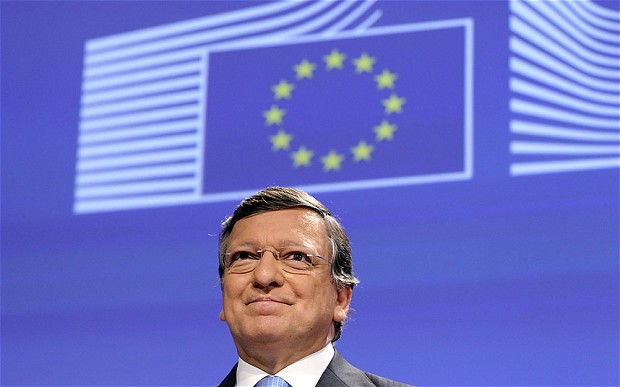During the past month I spent traveling in the Netherlands, the fifth net contributor to European Union’s budget in 2011, I had the opportunity to talk to many locals coming from all walks of life. One of the topics that I particularly enjoyed bringing up in these conversations was the possibility of EU becoming a federation. It was very interesting to realize that while most of the people I talked to acknowledged the necessity of this transformation, it was mainly the older generations that deemed it urgent. Many young people on the other hand, told me that they could not quite grasp what it would mean to be a citizen of Europe instead of the Netherlands, and as a result they were not all that enthusiastic about the idea. All the while, I also met some people who said that having a European Federation would be a disaster, after all, what did the Euro bring other than problems, they asked. Bearing in mind these various opinions, I will be discussing what the final step towards federalism would entail, and why there is a pressing need to take it. I will also try to map out the different concerns raised in these discussions, which the European government officials should be paying close attention to.
The concept of the European Union taking that giant leap to become a federation of nation states is not a new one. In fact, significant efforts have been made since the beginning of millennia. Unfortunately the past attempts have resulted in an embarrassment when the voters in two of the founding member states, the Netherlands and France, said “no” to the adoption of a European constitution during the referendums in 2005. Currently the EU provides an institutional framework that links the countries very closely to one another. Such intergovernmental links include a monetary union, 17 out of 27 member states are within the Eurozone, together with unitary decision-making bodies. Not to forget, within the EU, there is also the free flow of goods and people with 22 European member states being part of the Schengen area. That said, the union has not decentralised taxation powers or expenditure responsibilities yet, and political power remains with the member states.
The fact of the matter is no one really knows how European federalism, or an unprecedented political union, the phrase used by European officials who prefer not to scare off voters with the “f-word,” will look like. There are alarming concerns about the trade-off between legitimate representation and efficiency both when it comes to serving the diverse interests of member states and with respect to making the voice of all European citizens heard. Outside this uncertainty however, there are strong financial arguments in favour of having a further united federal Europe. Last year at his annual “state of the union” speech, the European Commission’s president Jose Manuel Barroso made a brave statement and called for a European federation. In a reference to BRIC countries, Barroso argued, “even the biggest countries in Europe alone, if they are on their own, they will not have the leverage to deal with these issues”. Becoming a federation is also seen as an ultimate solution to the threats posed by member states with high debt-to-GDP ratios including Greece, Ireland and Portugal. In a complete fiscal union these small countries’ debt levels would remain insignificant, freeing EU from problems such as lack of consumer-trust and high levels of volatility.
[captionpix align=”left” theme=”elegant” width=”300″ imgsrc=”http://i.telegraph.co.uk/multimedia/archive/02537/Barroso_2537891b.jpg”]
Putting the institutional uncertainties concerning the European federation aside, there are many real concerns of the public about this project. As a result of the informal discussions I had with many during my stay in the Netherlands, I was able to identify several possible causes of hesitation. Firstly, people seem to be very dissatisfied with the level of bureaucracy that is associated with the EU. A recent art project called the “museum of the future” in Brussels, which portrays the fictive collapse of the European Union in 2018, illustrates the artist’s annoyance with the over-bureaucratic, obsessively regulative nature of the union. Secondly, the self-centred rhetoric that dominates the national political platforms inevitably affects opinions. Fighting for the interest of the nation as opposed to the union still seems to be a trump card for political parties, as seen in the case of British PM David Cameron who has been speculating on leaving the EU. Lastly, identity seems to be a dividing line with centuries of national pride on one hand, and the hostility towards member states with high levels of debt on the other.
Bearing in mind that a big part of the European youth has never seen borders within Europe, I would have expected that they would be the most enthusiastic ones about having a further united Europe. To my surprise, it was the older generations who had experienced the aftermath of Second World War that were the most eager. In retrospect this makes sense as the older generations are much more aware of what is really at stake, whereas the youth is more susceptible to the political handicaps that come with further bureaucracy. The truth is a financially stronger EU is not only in the interest of Europeans. The failure of the European project and a chaotic disintegration would not only undermine NATO, but it would also threaten the global economy. European political leaders seem to have a lot to gain in the long term if they re-direct their efforts towards taking the EU one step further. There are many uncertainties about how a federation will find form but perhaps a good place to start would be by explaining to their constituencies why they really need the federation, as the French President François Hollande did.




